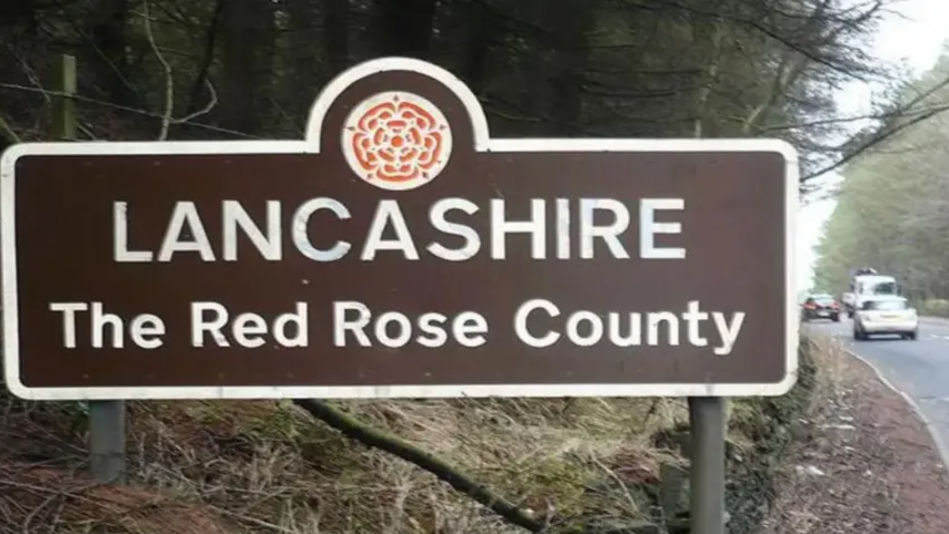Could this be the new East of England council map?
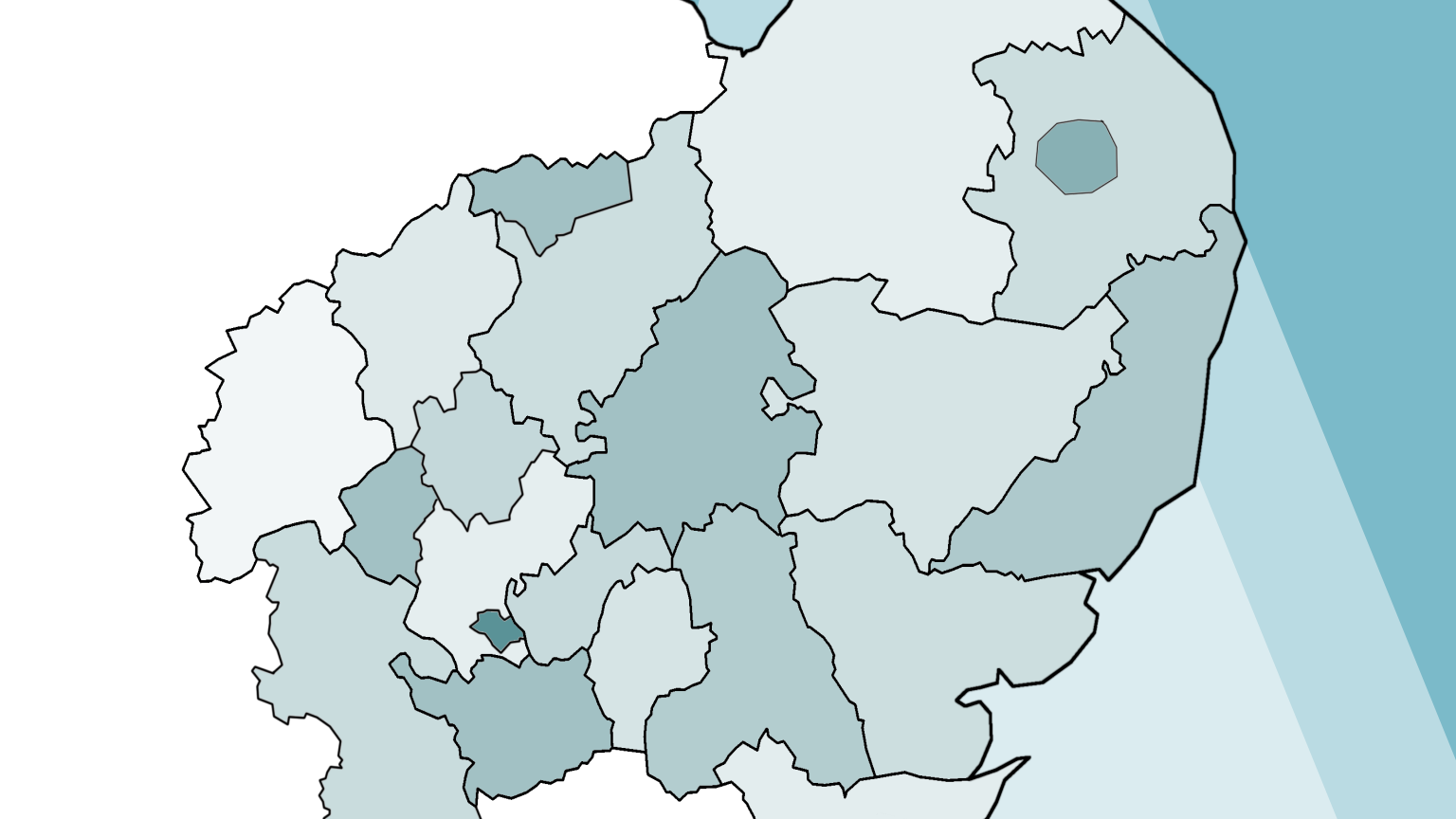
Plans for council reorganisation could see county, district and borough councils replaced by unitary authorities
- Published
No more county councils, no more district and borough councils. Instead, 18 unitary "super authorities" responsible for local services.
That is the vision we expect the government to outline when it publishes its paper on local government reorganisation.
Ministers believe fewer councils with more responsibilities can save money and provide a better service. Not everyone agrees.
There are no plans yet about where the new council boundaries would be but, after talking to lots of people in local government, we think the above map may be quite close to what is finally decided.
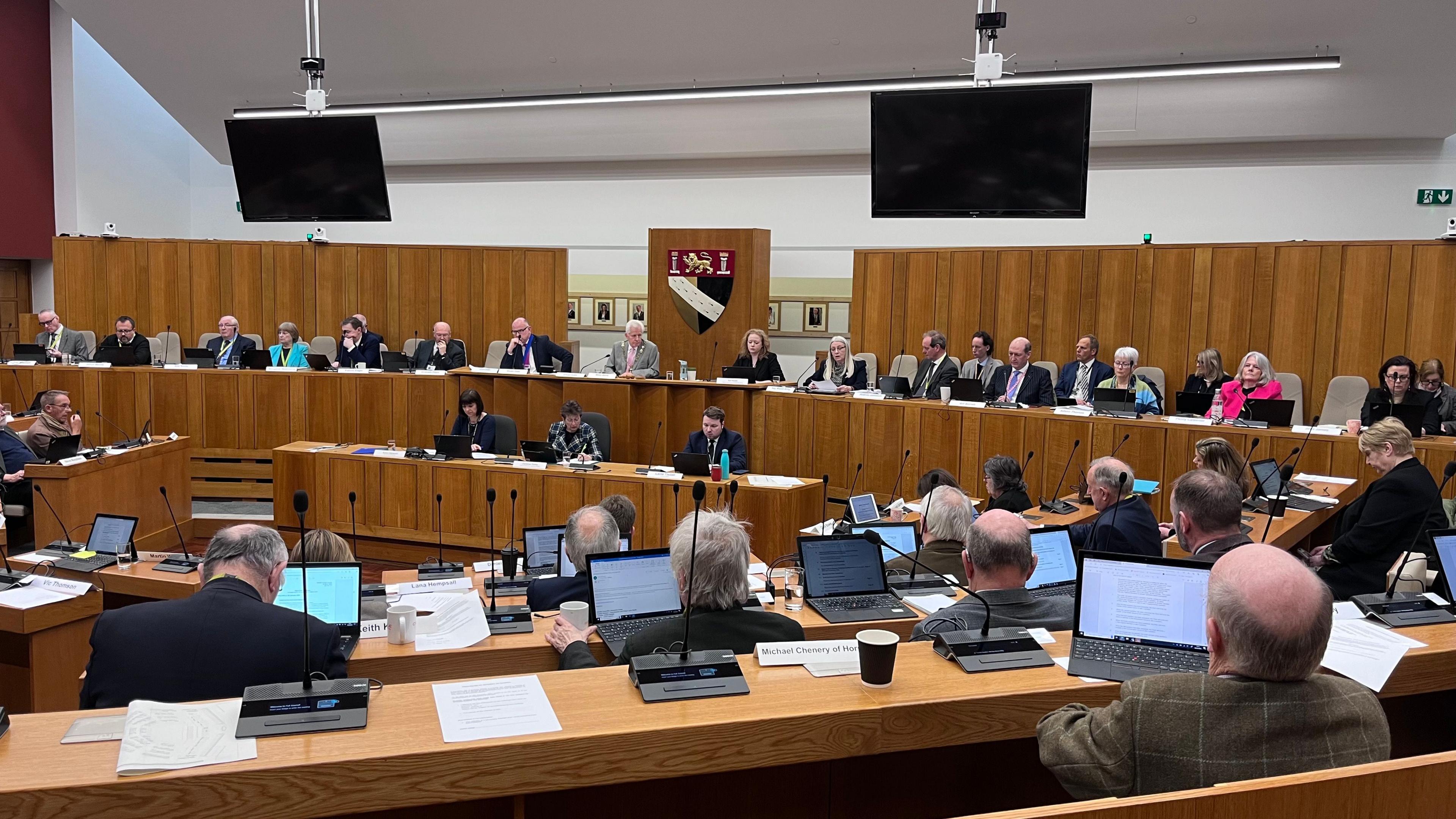
A meeting of Norfolk County Council, which could be replaced under plans to make local government more efficient
The last reorganisation of local government was 50 years ago and many people think it is time for another one.
At the moment county councils oversee social care, children's services, highways and libraries.
The so-called "tier two" authorities - district and borough councils - are responsible for more than 130 different things, including bin collections, housing, licensing, planning and local parks.
But since the last Local Government Act became law on 1 April 1974, the cost of providing these services, especially social care, has drastically increased.
Councils continually struggle to balance their budgets and often have to make cuts to services, while some like Thurrock have had to turn to the government for help.
New forms of governance, such as directly elected mayors with varying powers, have been introduced, some councils have merged and become unitary authorities, there are police and crime commissioners, while London has an assembly.
It is all getting complicated and many people do not know which body or council to turn to to get things done.

Basildon Council leader Gavin Callaghan believes Essex County Council is too big
In the budget the chancellor promised to "move to a simplified structure that makes sense for local areas with efficient savings from council reorganisation".
The government has not given any more details but we have been told the aim is to make every council a unitary authority.
If true, that would mean remaining county councils like those in Norfolk, Suffolk, Essex, Cambridgeshire and Hertfordshire would be scrapped along with their district and borough councils.
In their place would be unitary authorities, perhaps one for every county but more likely two or three.
And, after their bids for devolution were recently scrapped, we understand Norfolk and Suffolk will be told to share a directly elected mayor.
'More efficient and effective'
Gavin Callaghan, Labour leader of Basildon Council in Essex, has been campaigning for a South Essex unitary authority for the past 10 years.
"It needs to happen," he said.
He claims Essex County Council is too big to provide services for residents.
"If you look at the top 10 councils in this country, all of them have had to have some sort of [government] intervention over the last few years because their services have been difficult to run," he said.
"This will take the excuses out of local government, we'd have one council responsible for everything, so it creates a much more efficient and effective service."
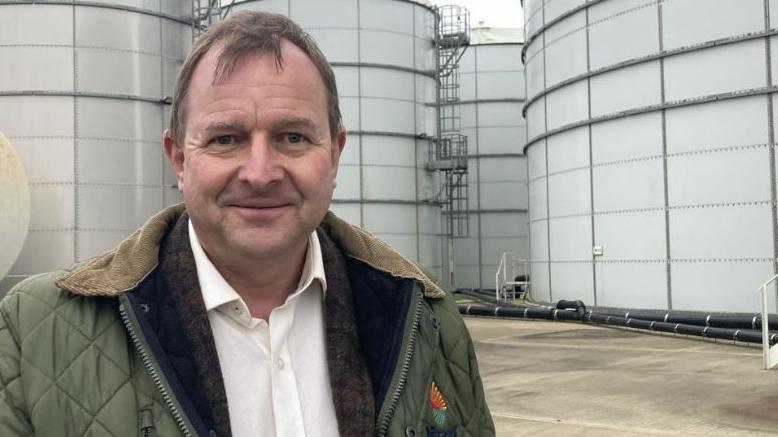
Conservative Lord John Fuller is a former leader of South Norfolk District Council
Lorna Dupre, Liberal Democrat councillor on East Cambridgeshire District Council and Cambridgeshire County Council, said the current system had "grown incrementally in all sorts of strange ways".
"Some people have five tiers of local government, which is just ridiculous."
Lord John Fuller, the former Conservative leader of South Norfolk District Council, said: "District councils have quite small budgets, so the suggestion that abolishing them is going to save huge amounts of money is probably not the main motivation as those services are going to have to be delivered by the new council.
"Every 50 years since the 1832 reform act, there's been a local government reorganisation and it's been 50 years since the last one, so I suppose it is about the time because the way people live their lives has changed."
He said it was vital to draw up rules on how to reorder council boundaries before redrawing them.
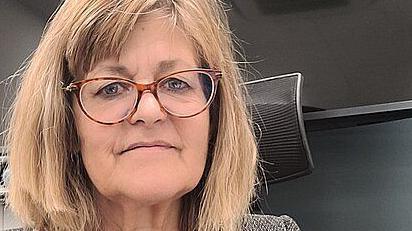
Susan Holland from Broadland Council said a one-size-fits-all authority could struggle to serve a wide area
Many council leaders are waiting to see the details before commenting.
A statement issued on behalf of Suffolk's district councils this week said "The system of two-tier local government has served Suffolk residents well.
"Borough and district councils are close to their communities, understand their needs and respond swiftly."
Broadland District Council leader Susan Holland said: "I think there is always room for improvement but my concern is whether things will improve.
"We are a diverse county with coastal, rural and urban areas.
"Their needs are different and this needs to be taken into account and I don't know that you'll always get that with a one-size-fits-all type of council."
She also worries many non-statutory things that councils currently do may not be continued by a bigger authority if it needed to make savings.
Get in touch
Do you have a story suggestion for the East of England?
BBC Politics East will be broadcast on Sunday, 1 December at 10:00 GMT on BBC One in the East of England, and will be available after broadcast on BBC iPlayer.
Follow East of England news on X, external, Instagram, external and Facebook: BBC Beds, Herts & Bucks, external, BBC Cambridgeshire, external, BBC Essex, external, BBC Norfolk, external, BBC Northamptonshire, external or BBC Suffolk, external.
Related topics
More stories like this
- Published25 November 2024
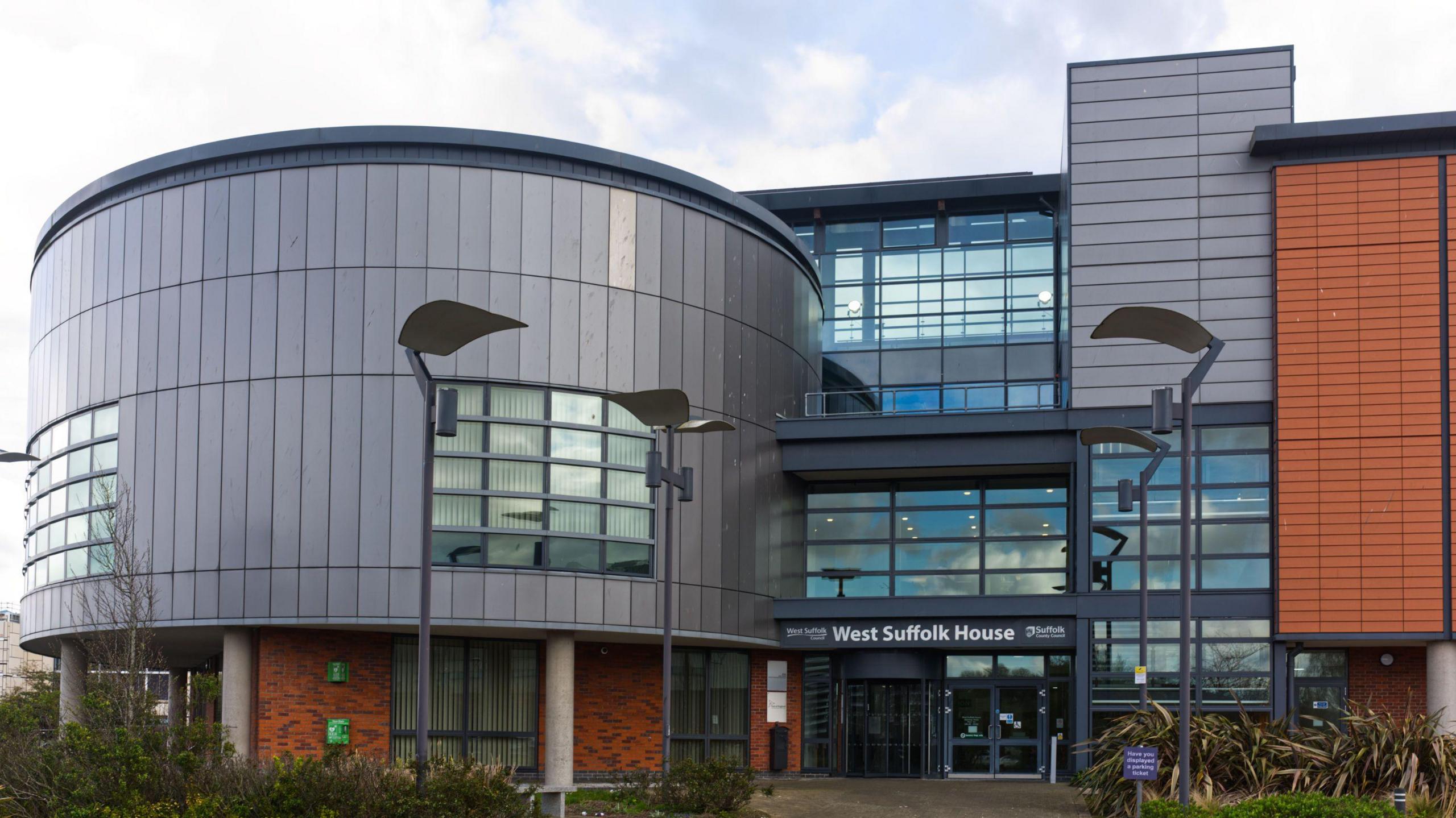
- Published12 September 2024
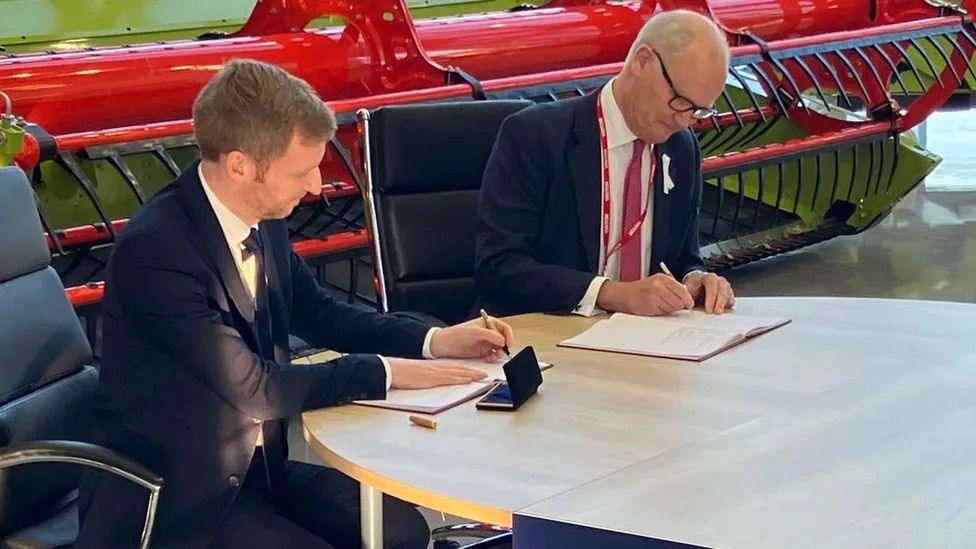
- Published23 November 2024
